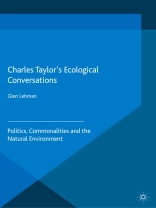The author uses the work of the eminent Canadian philosopher, Charles Taylor, to develop a critique of those political perspectives that are based on instrumental ways to reason about the world, claiming that such perspectives invariably sever the connections between the social and natural worlds.
Table of Content
PART I
1. Introduction
2. Basic Issues in Taylor ‘ ‘s Philosophy
3. Taylor ‘ ‘s Interpretivism, Knowledge and the Natural Environment
4. Taylor ‘ ‘s Interpretivism, Social Imaginaries and the Natural Environment
5. Taylor ‘ ‘s Metaphysics, Merleau-Ponty and the Natural Environment
PART II
6. Taylor ‘ ‘s Environmentalism and Critique of Utilitarianism and Instrumental Reason
7. Taylor ‘ ‘s Critique of Instrumentalism, Liberalism and Procedure in Politics
8. Interpretation, Language and Environmental Values: The Habermas and Taylor Debate
9. Critical Perspectives: The Taylor-Rorty Debate
10. Taylor and Deep Ecology
11. Critical Environmentalism: Marx to Taylor ‘ ‘s Interpretivism
12. Conclusion
About the author
Glen Lehman is Associate Professor in the School of Commerce, University of South Australia. He has published over 70 scholarly articles in a range of prestigious journals: Philosophy and Social Criticism, Journal of Business Ethics, Critical Perspectives on Accounting and Journal of Corporate Citizenship. Professor Lehman is a member of the British Political Studies Association as well as the British, American and Australian Accounting Associations.












